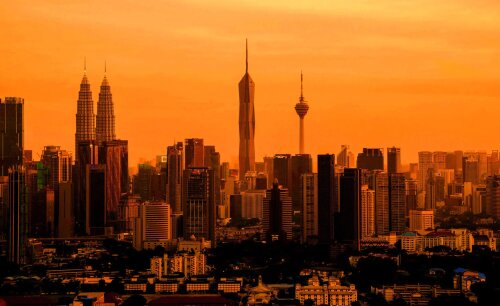Best Energy Regulatory Law Lawyers in Kuala Lumpur
Share your needs with us, get contacted by law firms.
Free. Takes 2 min.
List of the best lawyers in Kuala Lumpur, Malaysia

About Energy Regulatory Law in Kuala Lumpur, Malaysia
Energy Regulatory Law in Kuala Lumpur, Malaysia, governs the production, distribution, and consumption of energy resources such as electricity, oil, gas, and renewables. The law ensures that energy generation and supply are safe, reliable, environmentally responsible, and compliant with international standards. Given the rapidly growing energy sector in Malaysia, particularly in Kuala Lumpur, there is a strong legal framework designed to regulate both private and public sector activities. This includes licensing requirements, tariffs regulation, and compliance with national energy policies. The Energy Commission (Suruhanjaya Tenaga) plays a significant role in overseeing these regulations, enforcing compliance, and protecting consumers and the environment.
Why You May Need a Lawyer
Navigating Energy Regulatory Law can be complex, especially for companies, investors, or individuals involved in the energy sector in Kuala Lumpur. You may need a lawyer for situations such as:
- Applying for energy sector licenses or permits
- Understanding tariff mechanisms and regulatory charges
- Complying with local and international environmental standards
- Negotiating and drafting contracts for energy projects
- Resolving disputes involving energy supply or service agreements
- Dealing with regulatory investigations or enforcement actions
- Assessing the legal risks related to renewable energy projects
- Advising on import and export energy regulations
Having a legal expert ensures your interests are protected, compliance requirements are met, and you can navigate the regulatory landscape efficiently.
Local Laws Overview
The key aspects of local laws relevant to Energy Regulatory Law in Kuala Lumpur include:
- Electricity Supply Act 1990 - Governs licensing, safety, and supply of electricity.
- Renewable Energy Act 2011 - Regulates renewable energy development, feed-in tariffs, and incentives.
- Energy Commission Act 2001 - Establishes the role and authority of the Energy Commission.
- Gas Supply Act 1993 - Addresses the import, distribution, and supply of gas.
- Various Environmental Acts - Ensure that energy projects comply with environmental protection standards.
Local laws also include periodic amendments and subsidiary legislation, reflecting Malaysia's commitment to sustainable growth, consumer protection, and market efficiency in the energy sector.
Frequently Asked Questions
What is the role of the Energy Commission in Kuala Lumpur?
The Energy Commission regulates the electricity and piped gas industries, enforces safety and efficiency standards, issues licenses, and monitors compliance with statutory requirements.
Do I need a license to generate or distribute electricity in Kuala Lumpur?
Yes, you are required to obtain licenses from the Energy Commission for activities such as power generation, transmission, and distribution in Kuala Lumpur.
What steps are involved in applying for an energy sector license?
You will need to prepare an application, submit supporting documents, pay requisite fees, and comply with technical and safety requirements as stipulated by the Energy Commission.
Are there incentives for renewable energy projects?
Yes, the Renewable Energy Act provides incentives such as feed-in tariffs and tax benefits to encourage investments in renewable energy projects.
Can foreign investors participate in Malaysia's energy sector?
Foreign investments are allowed, but they must comply with ownership restrictions, capital requirements, and obtain approvals from the relevant authorities.
What happens if I do not comply with energy regulations?
Non-compliance can result in fines, revocation of licenses, suspension of operations, and, in serious cases, criminal prosecution.
How are energy tariffs determined in Kuala Lumpur?
Tariffs are regulated by the Energy Commission, based on various factors such as production cost, market demand, and government policies, with periodic reviews and adjustments.
What legal requirements apply to energy conservation?
Energy suppliers and users must comply with regulations promoting efficient use of energy and may be subject to audits, reporting, and mandatory implementation of conservation measures.
Is it necessary to conduct an Environmental Impact Assessment (EIA) for energy projects?
Yes, certain energy projects, especially large-scale and high-impact ones, require an EIA to evaluate potential environmental effects before approvals are granted.
How can disputes in the energy sector be resolved?
Disputes can be resolved through negotiation, mediation, arbitration, or litigation, depending on the nature of the disagreement and terms of the existing contracts or agreements.
Additional Resources
If you need extra guidance or official information, consider reaching out to these resources:
- Energy Commission (Suruhanjaya Tenaga)
- Ministry of Energy and Natural Resources Malaysia
- Malaysia Investment Development Authority (MIDA)
- Malaysian Green Technology and Climate Change Centre (MGTC)
- Malaysian Bar Council
- Local legal aid associations with expertise in regulatory law
These organizations can provide up-to-date regulations, application forms, and additional advice related to Energy Regulatory Law in Kuala Lumpur.
Next Steps
If you require assistance with Energy Regulatory Law issues:
- Identify your specific legal needs, whether it is licensing, compliance, contract review, or dispute resolution.
- Gather all relevant documents, permits, contracts, and correspondences.
- Contact a legal professional or law firm specializing in energy regulations and law in Kuala Lumpur.
- Consult the Energy Commission or relevant authorities for clarification on regulatory requirements.
- Consider consulting more than one lawyer to compare advice and approaches.
- Stay informed about changes in the regulatory landscape and compliance deadlines.
Early legal advice can save you time, reduce risks, and help ensure your operations in the energy sector comply with all applicable laws in Kuala Lumpur, Malaysia.
Lawzana helps you find the best lawyers and law firms in Kuala Lumpur through a curated and pre-screened list of qualified legal professionals. Our platform offers rankings and detailed profiles of attorneys and law firms, allowing you to compare based on practice areas, including Energy Regulatory Law, experience, and client feedback.
Each profile includes a description of the firm's areas of practice, client reviews, team members and partners, year of establishment, spoken languages, office locations, contact information, social media presence, and any published articles or resources. Most firms on our platform speak English and are experienced in both local and international legal matters.
Get a quote from top-rated law firms in Kuala Lumpur, Malaysia — quickly, securely, and without unnecessary hassle.
Disclaimer:
The information provided on this page is for general informational purposes only and does not constitute legal advice. While we strive to ensure the accuracy and relevance of the content, legal information may change over time, and interpretations of the law can vary. You should always consult with a qualified legal professional for advice specific to your situation.
We disclaim all liability for actions taken or not taken based on the content of this page. If you believe any information is incorrect or outdated, please contact us, and we will review and update it where appropriate.













